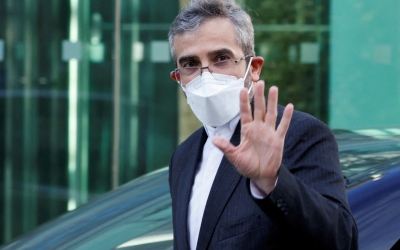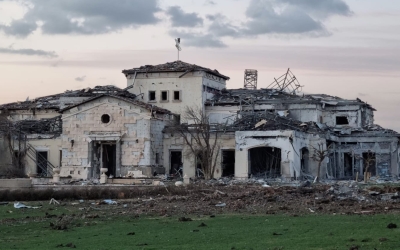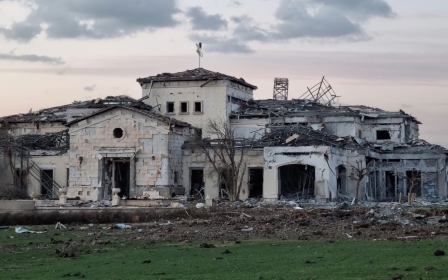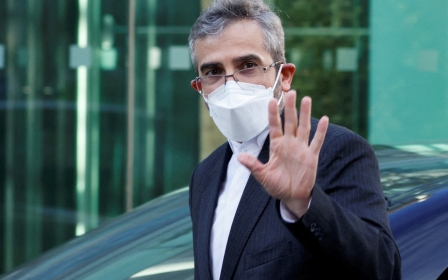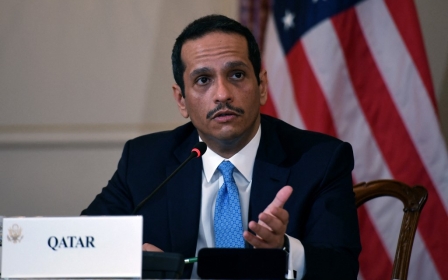Iran nuclear talks: Tehran says US has to take decision to revive deal
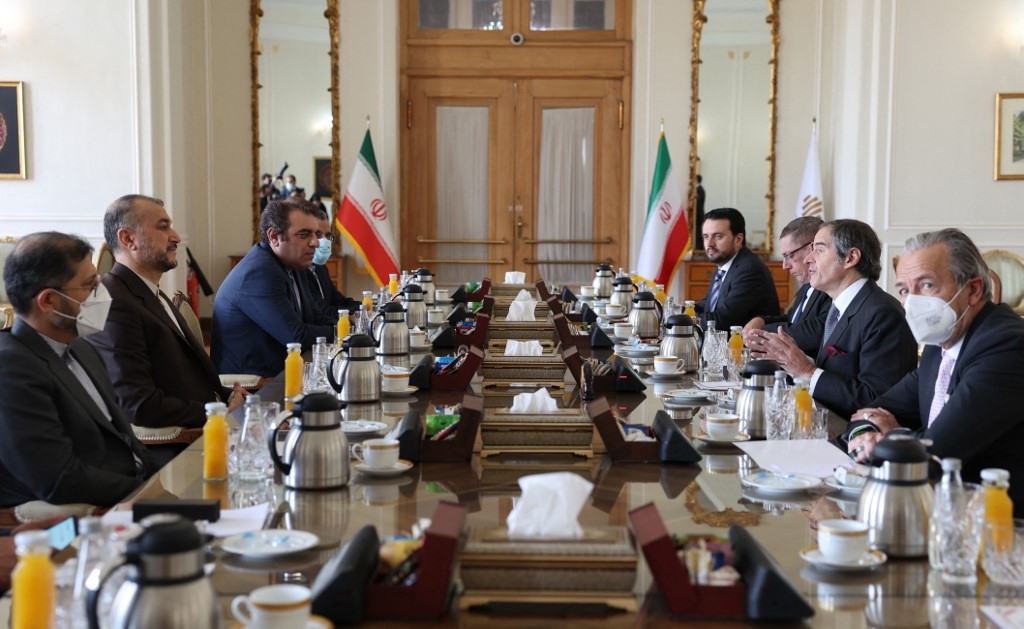
The United States needs to make a decision to revive the Iran nuclear deal, Tehran's foreign ministry spokesperson Saeed Khatibzadeh said on Monday.
Several factors have seen talks to revive the 2015 pact face the prospect of collapse.
Last week, talks in Vienna aimed at restoring the deal were put on hold after Washington announced it had seized the oil cargo of two Iranian ships which it claimed were breaking sanctions.
The Iranian delegation repeatedly warned the US in indirect talks in the Austrian capital not to seize the cargos of the two Greek-managed ships in Houston and the Bahamas, just as the negotiations on removing most of the sanctions were coming to fruition.
Last week, Middle East Eye reported that the US also made new unspecified demands that surprised and angered the Iranian side.
Washington is refusing to lift the designation of the Islamic Revolutionary Guard Corps (IRGC) as a foreign terrorist organisation; an issue between Iran and the International Atomic Energy Agency (IAEA) on the “possible military dimensions” of Iran’s activities has still to be resolved; and there remains the issue of removal from the sanctions list of other companies, businesses and individuals.
Earlier this month, Russia also asked for a written guarantee from Washington that its trade, investment and military cooperation with Iran will not be hindered by US sanctions over the Ukraine war.
The US said it would not negotiate exemptions to the sanctions on Russia and could try to agree a separate accord excluding Moscow, a senior US official told the Wall Street Journal on Sunday.
"I don't see the scope for going beyond what is within the confines of the JCPOA," the official said, referring to the nuclear deal formally known as the Joint Comprehensive Plan of Action.
"I think it’s pretty safe to say that there is no room for making exemptions beyond those."
'Having a breather'
Khatibzadeh said on Monday: "We are currently having a breather from the nuclear talks.
"We are not at a point of announcing an agreement now since there are some important open issues that need to be decided upon by Washington.
"As soon as we receive their decisions, we will be able to return to Vienna and reach a final agreement."
Qatari Foreign Minister Sheikh Mohammed bin Abdulrahman Al Thani said on Monday he had discussed the nuclear talks with his Russian counterpart Sergei Lavrov during a visit to Moscow.
Sheikh Mohammed, who spoke from the Russian capital in a televised news conference, did not provide further details.
Khatibzadeh said on Monday that Iran's Foreign Minister Hossein Amirabdollahian will also visit Russia on Tuesday, without elaborating.
Iran's Nour News, affiliated with a top security body, described Amirabdollahian's visit to Moscow as "a platform for serious, frank and forward-looking talks" between two countries which have demonstrated that "they can work very closely, decisively and successfully on complex issues".
'Base for attacks'
Tensions between Tehran and Washington were compounded over the weekend.
On Sunday, Iran attacked Iraq's northern city of Erbil with a dozen ballistic missiles that appeared to target the new US consulate building.
Iranian state media said the IRGC carried out the attack against Israeli "strategic centres" in the capital of Iraq’s semi-autonomous Kurdistan region, suggesting it was done in retaliation for Israeli operations against Iran.
Erbil's governor denied the presence of Israeli units, calling such allegations "baseless", local news agency Rudaw reported.
Tehran said it had warned Iraqi authorities many times that its territory should not be used by third parties to conduct attacks against Iran, Khatibzadeh said.
"The central government of Iraq has the responsibility to ensure that its territory is not used as a base for attacks by third parties against Iran," said Khatibzadeh.
"Several times in the past, Iraq's territory was used against Iran by third parties including terrorist groups such as Kurdish militants, the United States and the Zionist entity," he added, referring to Israel.
Despite the latest developments, Iranian officials seemed cautiously optimistic in assessing the future of the negotiations, which have lasted 11 months.
"We will remain in the Vienna talks until our legal and logical demands are met and a strong agreement is reached," Ali Shamkhani, secretary of the Supreme National Security Council, which makes the decisions in the Vienna talks, said in a tweet on Monday.
Middle East Eye delivers independent and unrivalled coverage and analysis of the Middle East, North Africa and beyond. To learn more about republishing this content and the associated fees, please fill out this form. More about MEE can be found here.


